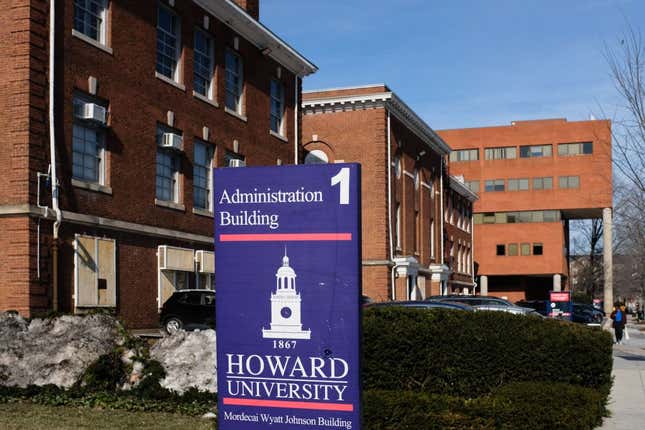
On Wednesday, the Biden administration announced The Project School Emergency Response to Violence (SERV) initiative, offering mental health resources and campus security enhancements through targeted grants to HBCUs impacted by the many threats which have plagued their campuses since the beginning of the year.
During the House Oversight and Reform Committee hearing Thursday, several historically Black colleges and universities leaders asked lawmakers to increase protections at their campuses. Students and faculty provided testimonies on how these threats have impacted their abilities to teach and learn. The FBI also provided updates about the ongoing investigation.
PBS reports that federal law enforcement agencies are working aggressively to make arrests in the 59 cases, calling the case their “highest priority.” All six suspects are juveniles, according to the FBI. Executive assistant director of the FBI intelligence branch Ryan Young stated investigators have identified “one person and a small group,” although some of the threats may have been copycat crimes.
The vast majority of the threats have been made by phone, with a small number coming in emails or other online messages, said Young, of the FBI. Investigators have had trouble tracing some threats that were made using encryption technology, he added.
Young declined to provide further details on the six juveniles, but he said they “know they are under the scope of an investigation.”
The hearing provided a forum for the voices who need help from these constant threats. Figures like Michelle Asha Cooper, an acting assistant education secretary, let lawmakers know that HBCUs will need extensive help recovering from these threats.
“Campus leaders do not have all the resources at their disposal to respond appropriately to the ongoing threats, and are not fully aware of the resources available from the federal government,” she said.
President of the student government at Xavier University of Louisiana, Emmanuel Ukot, claimed some students have been afraid to return to classes, some have sought mental health services.
“The triple impact of COVID-19, the ongoing racial reckoning in the country and the bomb threats on HBCU campuses is having a real and lasting impact on our students,” he told lawmakers.
President of Howard’s student government, Kylie Burke, said, “the added stress and in some cases paranoia that students, faculty, and staff have subsequently experienced cannot be overstated.” Howard University had received four threats alone since Jan. 4.
Some Democrats have said legislative measures are needed to increase HBCU funding for security, infrastructure, and other costs.

